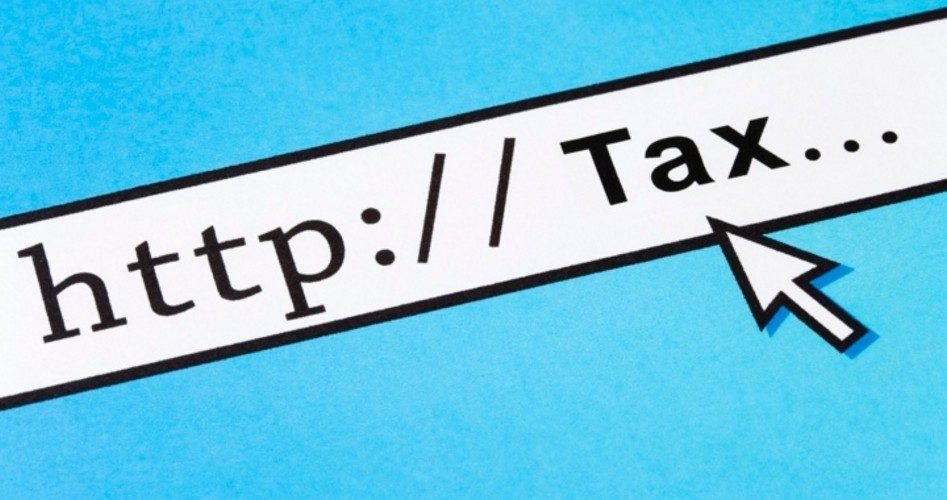
When the FCC created new rules for Net Neutrality by reclassifying the Internet as a Title II public utility, Chairman Tom Wheeler dismissed the idea of new taxes and fees as a myth. Now that the Net Neutrality Order has been made public, it is becoming clear that Chairman Wheeler is being less than honest. The real myth is that Big Government can regulate one of the greatest innovations mankind has ever known without adding to its cost. The reality is that new taxes and fees are coming.
While the order does not in and of itself create new taxes or fees, it lays a groundwork for others to do so, without ever calling it an Internet tax. Specifically, states and local municipalities can now increase taxes on property owned by Internet Service Providers because public utilities are allowed to be taxed at a much higher rate than other businesses. Wheeler and others who sold Americans on the Net Neutrality scheme point to the Internet Tax Freedom Act (ITFA) and say that it prevents “state and local jurisdictions from imposing new taxes on the Internet,” but since the Internet is now considered a public utility, it would be the providers — not the Internet itself — that would be taxed. Of course the ISPs will have to consider those taxes as business costs and pass them along to consumers. The result is going to be higher and higher Internet bills — the very thing Wheeler and his ilk say will not happen.
To make matters worse, the ITFA comes up for reauthorization in September, and though it has been reauthorized five times, there is no guarantee that will happen again. If reathorization fails, states and local municipalities could add to their coffers by taxing the Internet directly as well as by taxing the property of ISPs at the higher rate allowed by the Title II reclassification. Furthermore, there is a difference between the theory of the order not creating new taxes and the reality of the federal government passing regulations and then expanding them to something larger.
Now that they have passed it, it’s time to see what’s in it.
Even some on the Left have predicted new taxes and fees as a result of Net Neutrality. The Progressive Policy Institute issued an eight-page report back in December showing why “U.S. consumers will have to dig deeper into their pockets to pay for both residential fixed and wireless broadband services” under the Net Neutrality plan to reclassify the Internet as a public utility under Title II. The report estimates an average increase in the cost of Internet services of $84 per year per subscriber. The plethora of taxes and fees that can be added as a result of Title II reclassification will add up to higher Internet bills for all users since “the fees are passed along to customers, just as they are now on telecommunication services,” according to the report.
The report is the result of The Progressive Policy Institute realizing that no one had analyzed the economic impact the decision would have on consumers. As the report puts it:
We looked into the issue and discovered there is nothing but bad news on this front: Once ISPs are labeled “telecommunications providers” under Title II, their services become subject to both federal and state fees that apply to those services. The two main federal charges are an excise tax and a fee for “universal service.” (We ignore the federal excise tax for the purposes of our calculation.) States and local municipalities impose similar fees and taxes — from franchise fees to high-cost funds to utilty user fees to state-based universal service funds — which vary from state to state, and within states by locality. (We ignore any state and local fees that apply to businesses.)
Although the state and federal governments collect these fees from broadband providers, history shows — and economic models of competitive markets predict — that the fees are passed along to customers, just as they are now on telecommunication services. So consumers’ Internet bills will soon have all those random charges tacked on at the end, much like they see on their phone bills. And these new reclassification-induced fees will be on top of the FCC’s planned 16-cent-per-month (or $1.92 per year) increase in wireless and wireline fees to add $1.5 billion to the fund that finances Internet connections in schools. [Emphasis in original.]
So, even ignoring the federal excise tax and the state and local fees that apply to businesses, the taxes and fees that consumers will be saddled with start to add up. Add in the federal excise tax and state and local fees and the problem is even worse. No wonder Chairman Wheeler withheld releasing the report for two weeks while spinning its contents and creating a “Facts vs Myths” page to deal with the obvious results of his plan.
Net Neutrality is a boondoggle of heavy-handed regulation and expense that has been foisted on the American people, who will be expected to pay the bill.
Fortunately, the issue is not as settled as Wheeler would like consumers to believe. Net Neutrality will undoubtedly face both legal and legislative challenges in the coming weeks. ISPs and others are combing the order looking for weaknesses that can be challenged in court, and several legislators are introducing bills to set the order aside.
Net Neutrality is still the greatest danger to a free and open Internet so far. And the most expensive.




